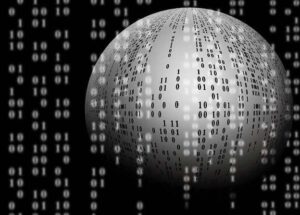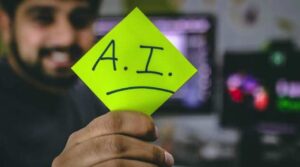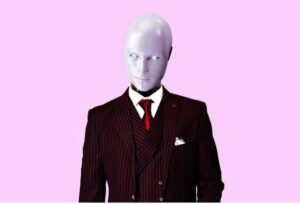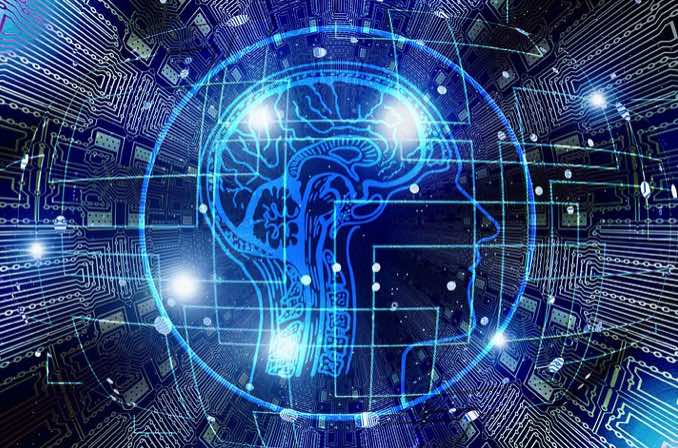“What goes up, must come down”, that is the law of nature – said Issac Newton. But sustainable business organisations disprove and challenge it with their reversed law of nature, “what comes down, must go up.”
In the Covid World, we are witnesses of Newton’s law of nature, seeing the spiral effect of economy in its downward curve. Can business set our economy back on track with its reversed law of nature?
While header of COVID-19 is causing an unfortunate mass destruction in terms of lives lost and sheer economic rout, the footnote of COVID-19 could very well be a positive change to the technology (digitalisation) leading to a complete transformation in business.
 Change is always progressive in nature. Digital trends have set their tones and roots for sure in the last one decade. The giants in business have already invested into the future world of change – digitalisation. Never in the history of the past, any one has gone back in time. Technology will be the hope of future. Thus with the current innovative trends in the world of technology, specially in the Post Covid-19 era, we could well be heading for a smaller world (a world economic minimalism) and a leaner world ( a world of digitalisation).
Change is always progressive in nature. Digital trends have set their tones and roots for sure in the last one decade. The giants in business have already invested into the future world of change – digitalisation. Never in the history of the past, any one has gone back in time. Technology will be the hope of future. Thus with the current innovative trends in the world of technology, specially in the Post Covid-19 era, we could well be heading for a smaller world (a world economic minimalism) and a leaner world ( a world of digitalisation).
The change in this direction has already begun.
Digitalisation towards the leaner world
Lean thinking is “a business methodology that aims to provide a new way to thinking about how to organise human activities to deliver more benefits to society and value to individuals while eliminating waste” (wikipedia definition).
This lean thinking expresses itself through value, value streams and flow. Lean is a term often used in the business world for creating greater value for the consumer while using fewer resources and minimising wastage.
No doubts, Toyota was a pioneer in lean management thinking with their processes. With Toyota, today many leading IT giants like GAFA (Google, Apple, Facebook and Amazon) and the web genets like Twitter, Linkedin and WordPress have embraced Lean Management as the key platform in their operations. Thus, we can ultimately say that ‘Digitalisation and Lean’ are compatible and inseparable twins irreplaceable in times to come.
Today’s multitude of innovations in the digital world offer an incredible opportunity to build companies lean’s efforts by enabling massive cost savings and eliminating waste of man, machine, money and materials.
Lomit Patel’s first bestselling book called ‘Lean AI,’ which is part of Eric Ries’ “The Lean Startup,” foresights how innovative startups would use artificial intelligence and machine learning to scale up growth with a lean methodology.
 While no one knows yet how Artificial Intelligence will be incorporated into the next phase of the Industrial Revolution, most agree that Artificial intelligence (AI) allows greater connectivity between people, information, and machines, improving how business operators optimize products/services and processes, and predict problems/issues in advance. AI promises to be the next evolutionary step in productivity advancement with a lean methodology.
While no one knows yet how Artificial Intelligence will be incorporated into the next phase of the Industrial Revolution, most agree that Artificial intelligence (AI) allows greater connectivity between people, information, and machines, improving how business operators optimize products/services and processes, and predict problems/issues in advance. AI promises to be the next evolutionary step in productivity advancement with a lean methodology.
The accompanied benefits are to improve employees’ interface with technologies and in-turn render many operational processes of major business sectors redundant, specially in the manufacturing sector. It will remove human involvement in advanced cases and improve the quality of products, lead time and costs associated with product development with the methodology of lean principles. And above all, it will change the face of workforce management entirely.
Where does that leave people in employment will be point of contention. But there is no turning back.
 Right now, AI is playing a supportive role to industry leaders in their analysis to improve decision making, but soon AI will graduate from a role on ‘assisted intelligence’ to ‘autonomous intelligence’ making its own business decision, making the world much leaner, and in turn smaller.
Right now, AI is playing a supportive role to industry leaders in their analysis to improve decision making, but soon AI will graduate from a role on ‘assisted intelligence’ to ‘autonomous intelligence’ making its own business decision, making the world much leaner, and in turn smaller.
Internet of Things is another example for creation of lean world. The gathering of multi-dimensional data via embedded RFID devices or sensors, the sharing of these data among machines, and their analysis by Cloud computing will render human involvement almost redundant in the future.
Thus it is almost inevitable that digitisation of manufacturing, logistics, service and market channels will create new business opportunities. The old will give way to the new.
Essentialism towards a smaller world
Essentialism is a way of thinking and living our choices of life. It is a systemic and disciplined approach to pursue for less and find meaning.
In a world of essentialism, the customer becomes the ultimate chooser. It is a different and in a way, a difficult way of doing everything. It is living by design, not by default. It is a principled way of doing things right.
 Essentialism simply focusses on what is economical and existential (refer my earlier article). It distinguishes the important few from trivial many and eliminates the non-essentials.
Essentialism simply focusses on what is economical and existential (refer my earlier article). It distinguishes the important few from trivial many and eliminates the non-essentials.
Why should I focus on essentialism and what does it have to do with the leaner world.
With economic recession of the 21st century along with covid-19, and machine (AI) replacing human effort by more than 50% in another decade, customers will be forced to embrace the world of essentialism. their existential conditions will force them to do so, if not otherwise.
The Customers will not be forced with/will be free from the exponential choices of the market and the social pressure to accumulate materials, they may not require.
The Essentialist customers will explore, evaluate, eliminate activities and things that don’t make sense, and execute their action based on discernment and discretion.
The invincible power of choice from customer will reshape the market and its production.
the customers will make the following choices
A choice from – ‘I have to’ to ‘I choose to’
A choice from – ‘everything is important’ to ‘Only few things are important’
A choice from ‘I can do everything’ to ‘I can do only this and not all these’
What will the world of essentialism do to the market going forward. There are two things here. One is a customer’s ability to hold back his crave for needless materialism and the other is the industry response to the new science and technological developments that are/will be determining the course of the consumer market based on essentialist’s choice. That choice of the customer is going to be unique and the technology will have to answer that very soon.
What do we do now
A Crisis is a great opportunity to challenge ‘Zombie’ ideas and practises that are now obsolete and detrimental to our progress and time. Technology is the only tool to dispel darkened world of our time in every sphere of life. This technology mingled with man’s aspiration for change in the right direction will revolutionalize humankind for good.
Years ago, I remember reading the book of Thomas Friedman, ‘the world is flat.’ That foresight is indeed a reality today, we have even gone even a step further. Far from being flat, we are truly heading for a smaller world (a world of economic minimalism) and a leaner world ( a world of digitalisation).
This is going to stay for a long time and revolutionise our time for good. Both, in my opinion, are going to complement then contradict each other. While minimalism will focus on life-choices and life-styles, Digitalisation will enhance it towards better productivity and prosperity. The intelligence of man will be put to test.
We cannot be mere witnesses to this reversed business law of nature, but actors of it. We have the will and tenacity to bounce our way back with the grit of true leadership guts and commitment, and embrace the digital world for the betterment of society and our economy.
This is a transition phase. This transition period is a moment of redemption and resurrection for businesses specially the SMEs. In the next normal, businesses will not be revenue lagged but revenue driven, not delivery focused, but product and solution focused, not cross-purposed, but vision purposed, and not past centric, but future-centric; the simple reason is that technology will be the enabler.
‘It’s no longer the Big beating the Small, but the Fast beating the Slow’ – Eric Pearson
The Next world will be small and lean. This is going to impact every facet of our life. With relatively simple steps, we will be able to find our groove, purpose and vision, and create a turn around with a speed of light. The credit should go to our technology.
Elias Moses is a Senior Business Strategist, Consultant, Researcher, Corporate and Leadership Trainer, Orator, Columnist and an Entrepreneur. He is also the Founder and Managing Director of a growing reality firm in south India. He is also the founder of Managing Next, an Online portal for knowledge share and Management Consulting.
The author can be contacted@
email: elias@managingnext.in, linkedin: www.linkedin.com/in/eliasmoses
